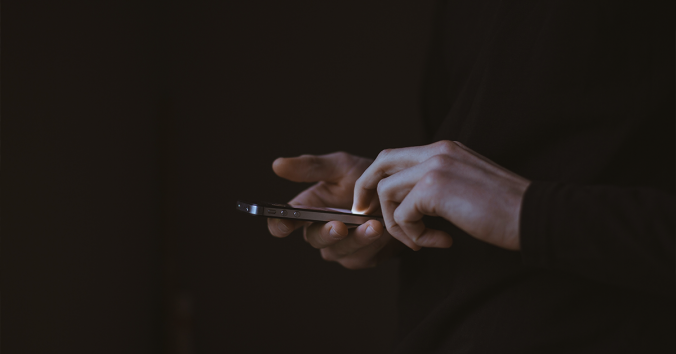What will you do if you feel sick or discover a rash and wonder what it is? Is it something serious? If you do not immediately contact healthcare, a common first step is to search for information on the internet. But there are also applications for mobiles and online, where users can check their symptoms. A chatbot asks for information about the symptoms. The user then receives a list of possible causes as well as a recommendation, for example to see a doctor.
Because the interaction with the chatbot can bring to mind a visit to the doctor who makes a diagnosis and recommends action, these apps raise questions that may have more to do with these tempting associations than with reality. Will the apps in the future make visiting the doctor redundant and lead to the devaluing of medical professions? Or will they, on the contrary, cause more visits to healthcare because the apps often make such recommendations? Do they contribute to better diagnostic processes with fewer misdiagnoses, or do they, on the contrary, interfere with the procedure of making a diagnosis?
The questions are important, provided they are grounded in reality. Are they? What do users really expect from these symptom checker apps? What are their experiences as users of such digital aids? There are hardly any studies on this yet. German researchers therefore conducted an interview study with participants who themselves used apps to check their symptoms. What did they say when they were interviewed?
The participants’ experiences were not unequivocal but highly variable and sometimes contradictory. But there was agreement on one important point. Participants trusted their own and the doctor’s judgments more than they trusted the app. Although opinions differed on whether the app could be said to provide “diagnoses,” and regardless of whether or not the recommendations were followed, the information provided by the app was considered to be indicative only, not authoritative. The fear that these apps would replace healthcare professionals and contribute to a devaluation of medical professions is therefore not supported in the study. The interviewees did not consider the apps as a substitute for consulting healthcare. Many saw them rather as decision support before possible medical consultation.
Some participants used the apps to prepare for medical appointments. Others used them afterwards to reflect on the outcome of the visit. However, most wanted more collaboration with healthcare professionals about using the apps, and some used the apps because healthcare professionals recommended them. This has an interesting connection to a Swedish study that I recently blogged about, where the participants were patients with rheumatoid arthritis. Some participants in that study had prepared their visits to the doctor very carefully by using a similar app, where they kept logbook of their symptoms. They felt all the more disappointed when they experienced that the doctor showed no interest in their observations. Maybe better planning and collaboration between patient and healthcare is needed regarding the use of similar apps?
Interview studies can provide valuable support for ethical reasoning. By giving us insights into a reality that we otherwise risk simplifying in our thinking, they help us ask better questions and discuss them in a more nuanced way. That the results are varied and sometimes even contradictory is therefore not a weakness. On the contrary, we get a more faithful picture of a whole spectrum of experiences, which do not always correspond to our usually more one-sided expectations. The participants in the German study did not discuss algorithmic bias, which is otherwise a common theme in the ethical debate about AI. However, some were concerned that they themselves might accidentally lead the app astray by giving biased input that expressed their own assumptions about the symptoms. Read the study here: “That’s just Future Medicine” – a qualitative study on users’ experiences of symptom checker apps.
Another unexpected result of the interview study was that several participants discussed using these symptom checker apps not only for themselves, but also for friends, partners, children and parents. They raised their concerns about this, as they perceived health information from family and friends as private. They were also concerned about the responsibility they assumed by communicating the analyzes and recommendations produced by the app to others. The authors argue that this unexpected finding raises new questions about responsibility and that the debate about digital aids related to health and care should be more attentive to relational ethical issues.

Written by…
Pär Segerdahl, Associate Professor at the Centre for Research Ethics & Bioethics and editor of the Ethics Blog.
Müller, R., Klemmt, M., Koch, R. et al. “That’s just Future Medicine” – a qualitative study on users’ experiences of symptom checker apps. BMC Med Ethics 25, 17 (2024). https://doi.org/10.1186/s12910-024-01011-5
We recommend readings



0 Comments
1 Pingback